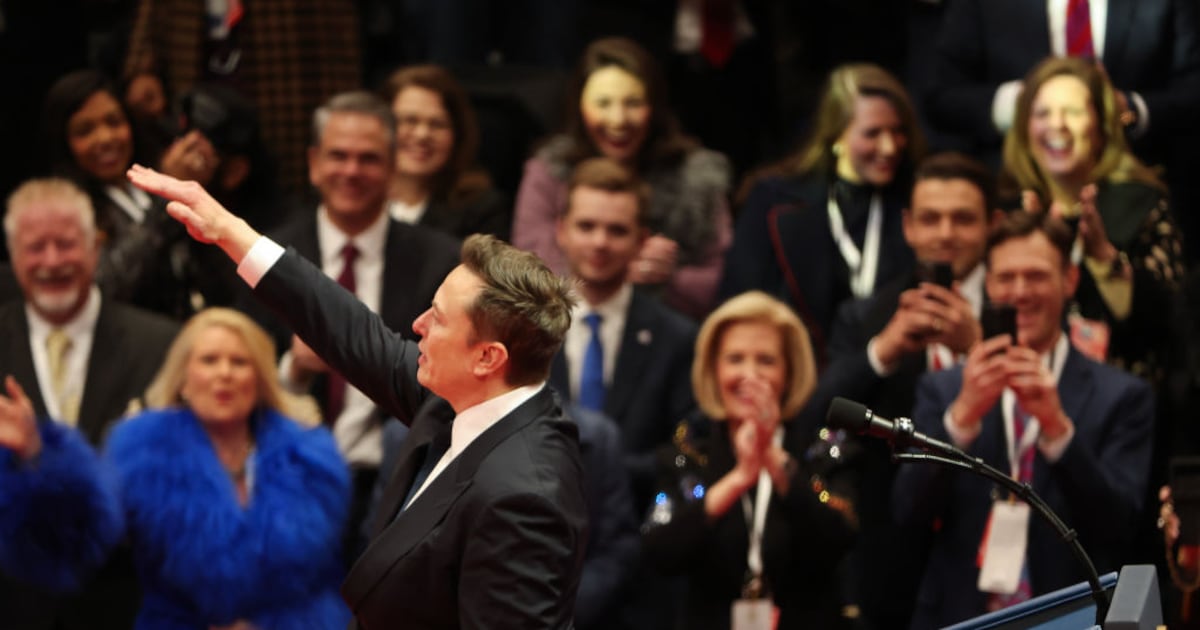Republicans have opened a new front against Obama, a southern front, south of the border—Latin America. The clique of conservatives that has operated since the Iran-Contra scandal and held key policy offices in the George W. Bush administration is waging war against Obama in part through Sen. Jim DeMint of South Carolina.
A freshman on the Foreign Relations Committee with no previously known expertise on Latin America, DeMint is best known for boasting that health care would be the “Waterloo” that will “break” Obama. He recently provoked a nasty spat within the committee by requesting funding to travel to Honduras to “assess” the crisis. The Obama administration favors reinstalling the democratically elected president, Manuel Zelaya, a leftist who was expelled by the military in June. Committee Chairman John Kerry criticized DeMint for his “intransigence” in putting a hold on two Obama nominations for State Department jobs in Latin America, and initially denied money for DeMint’s trip. But Senate Republican Leader Mitch McConnell somehow found funding through the Defense Department.
“These losers from the Bush administration who drove Latin American policy off a frickin’ cliff are trying to rescue their legacy,” one congressional aide told The Daily Beast.
“DeMint has been using this issue cynically to hold hostage the entire U.S. policy on Latin America in order to defend a coup,” says Adam Isacson, a Latin American specialist at Washington’s Center for International Policy.
“Little Honduras has brought all of the ghosts of the Cold War out of the closet, and paralyzed policy by provoking the [DeMint] holds,” Julia Sweig, the director for Latin American Studies of the Council on Foreign Relations, told me. Some Hill staffers are even blunter: “These losers from the Bush administration who drove Latin American policy off a frickin’ cliff are trying to rescue their legacy,” one aide told The Daily Beast.
A number of Democrats and foreign-policy experts contend the mounting right-wing attack on Latin American policy has filled a void left by an Obama administration that was too slow to cut aid or take a firmer stance against the president installed by the Honduran military, Roberto Micheletti. Driven partly by a desire to appease opposition in Congress and distaste for left-wing populists, the Obama administration “slow-walked” its response to the coup this summer, Sweig says.
More recently, though, the administration has toughened its approach by cutting off some vital aid worth at least $35 million and blocking Honduran officials’ visas. The goal: to pressure the Micheletti regime to enter into serious negotiations with the Organization of American States to restore the democratic government and Zelaya. Informed observers say that indications of Micheletti’s flexibility alarmed some right-wingers in Washington and helped trigger DeMint’s visit to buck up the regime’s resistance.
An informal network of right-leaning American advocacy groups and ideologues was entangled in anti-Zelaya legal and PR battles in Honduras before the coup. Among them: Otto Reich, a Cuban-American who headed the State Department’s now-defunct Office of Public Diplomacy during the Iran-Contra scandal, and was subsequently investigated by a special joint congressional panel—and the U.S. Comptroller General, which found he engaged in “prohibited covert activities” by using public funds to attack Reagan’s critics. Reich, who was later appointed by President George W. Bush to be assistant secretary for Western Hemisphere Affairs and is now a private consultant, launched a media campaign against Zelaya before the coup alleging corruption.
“Your Loony Left sources say I was an architect of Iran-Contra like they say I’m an architect of the Zelaya coup,” he told me by phone from Panama. He disputes claims of illegal Iran-Contra activites as “crap,” asserting they were only based on a fired House staffer’s unpublished memo. But Greg Grandin, a Latin American history professor at NYU, has a darker view of Reich’s role: “It’s kind of the origins of Swift Boating,” he says. “It’s all related to what he’s doing now.”
Conservative supporters of the current Honduran government argue on arcane legal grounds against the worldwide condemnation of the coup. “It’s not the first time all the countries in the world have been wrong,” Reich told me. He has criticized what he sees as erroneous reporting on Latin American controversies, taking The New York Times to task for an article last Thursday that he says implied he was being paid to lobby on behalf of the Micheletti regime. “I guess my facts interfered with [the] story,” he says. “Can you believe some of my sources say The New York Times is malicious and deserves the slow death it is experiencing?” A DeMint spokesman says the senator hasn’t even met with Reich to talk about Honduras, although a Reich aide says they’ve spoken to DeMint’s staff.
Adding to the mystery of the coup, left-wingers in Latin America and the U.S. have floated what conservatives say are unproven conspiracy theories that Reich somehow played a role in destabilizing Zelaya’s regime. He has firmly denied them to The Daily Beast: “I cannot possibly answer all the Loony Left conspiracy charges against me. But I will try: I had nothing to do with the removal of Zelaya.” But the rumors may add to his aura of power as founder of Otto Reich Associates. He’s drawn more attention to the new Honduras allegations by penning a column for the Miami Herald boldly headlined, “I Did Not Orchestrate Coup in Honduras.”
Perhaps the primary influence on DeMint’s thinking has been the right-wing Honduran-American lawyer Miguel Estrada, whose 2001 nomination to the U.S. Court of Appeals for the D.C. Circuit was rejected by the Senate. In addition to Reich, other former Bush administration officials who have played key roles in influencing DeMint and in spreading arguments for the Honduran regime include Roger Noriega, a former aide to the late Sen. Jesse Helms (the far-right chairman of the Foreign Relations Committee) who also served as an assistant secretary for Western Hemisphere Affairs from 2003 to 2005. On July 2, Noriega appeared on The NewsHour with Jim Lehrer to argue the legitimacy of the new Honduran regime. He was identified as a former ambassador to the Organization of American States and a visiting fellow of the American Enterprise Institute—not as a paid agent for pro-regime forces.
Noriega officially registered his firm, Visions America, as representing a Honduran business group only in mid-July. Yet, the Times reported, he worked with the Association of Honduran Manufacturers to set up meetings between supporters of the regime and eight U.S. senators—including DeMint—in early July. That visit to Washington by Honduran business and political figures from July 2 to July 10, Foreign Policy reported, occurred at the same time as a House committee hearing during which Reich—along with a former Honduran supreme court justice and Lanny Davis, a former Clinton administration official and now a lobbyist—testified in favor of the current regime. Noriega’s office declined to return phone calls about his work.
The lobbyist-organized visit also coincided with Senate Foreign Relations Committee hearings on Obama’s picks for top Latin American posts: Thomas Shannon, current assistant secretary for Western Hemisphere Affairs, has been nominated to be Ambasssador to Brazil; and Arturo Valenzuela, director of Georgetown University’s Center for Latin American Studies and senior director for Inter-American Affairs at the National Security Council during President Clinton’s second term, has been tapped to be assistant secretary for Western Hemisphere Affairs. Both Valenzuela and Shannon were approved by the Senate Foreign Relations Committee in late July. Julia Sweig of the Council on Foreign Relations observes, “They’re not polarizing figures.”
But for now they’re hostages in DeMint’s war. At the July 8 nomination hearings, Valenzuela angered DeMint by defending the administration’s decision to condemn the overthrow as a coup: “In my studies of military coups in Latin America, this was a classic military coup,” Valenzuela said. DeMint’s critics contend that he has continually refused compromise offers from both State Department officials and fellow senators to lift his holds, including the promise of an extensive floor debate on Honduras before a floor vote on the nominees.
DeMint’s spokesperson, Wesley Denton, says he’s acting in good faith out of genuine concern about an important crisis. “If these nominees are such a top priority for Democrats, then why hasn't Senator Reid brought them to the floor?” he asks. “There is nothing Senator DeMint can do to stop a full debate and roll-call vote on them.” Technically that’s true, but it would be a rare violation of a Senate tradition to do so. DeMint has taken up the issue of Honduras, Denton claims, because, “the State Department's actions were directly relevant to two nominees seeking the committee's approval.”
Yet before DeMint took up the crusade on Honduras—in what critics say is yet another vehicle to “break” Obama—one congressional observer jokes, “He couldn’t find Honduras on a map.”
Art Levine, a contributing editor of The Washington Monthly, has written for Mother Jones, The American Prospect, The New Republic, The Atlantic, Slate.com, Salon.com, and numerous other publications. He also blogs regularly on labor, health, and other reform issues for In These Times and Huffington Post.





